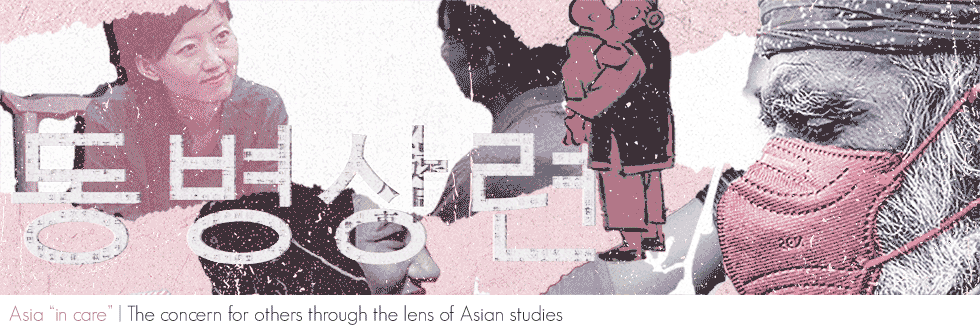
Call
The multiple challenges facing our contemporary societies raise with great acuity the question of the attention, the care, and the help given to others as well as those that we received from them. They encourage us to reflect on and even reshape, the forms of interdependence and mutual aid that we provide to and receive from others. Many debates are being held about the place given to the responsibilities that each of us assumes and regarding the recognition given to the solicitude that we enjoy. The various forms of interactions that determine our lives presuppose dispositions, activities that have been conceptualized in the notion of care (Zielinski, 2010). However, this notion remains unclear. All too often, we perceive it as being restricted to specific domains mainly related to health and education. However, care is very broad in scope. In France, it has recently given rise to the expression "world in care" (Macé, 2020). Following in the footsteps of Guilligan's (1986) and Tronto's (1993) founding writings, we consider care to be "the characteristic activity of the human species which includes all that we do to maintain, perpetuate and repair our world so that we can live there as well as possible" (Tronto, 1993). Far from reducing care to an interpersonal relationship, this definition offers a very broad perspective on ourselves and those around us. The "Asia in care" workshop aims to discuss on the way to approach the different dimensions of care in Asian studies, the way they are observed and analyzed in ancient, modern and contemporary societies, the written, oral, artistic and cultural traces of this concept. We wish to explore this notion from its multiple manifestations. Among other aspects, we propose to try and answer the following questions:
We would like to encourage cross-disciplinary approaches of these questions in order to take into account the richness and diversity of studies, systems of thought, concrete experiences and social phenomena through which the notion of care, and its links with the emic concepts in the different cultures of Asia, can be grasped. We expect proposals from all disciplines, in order to confront historical, sociological, anthropological, economic, political, spatial and cultural perspectives. We hope to contribute to the elaboration of new ways of thinking about the situations we are going through. Key words: care, benevolence, solicitude, help, care, representation, social organization, expression, art, norms, ethics, morals, inequalities, gender, handicap, migration, vulnerability, Asia. Terms and conditions of participation The call is open to all researchers, teacher-researchers, and young researchers in the field of Asian studies in France and abroad. Proposals from young researchers are particularly encouraged. Speakers in the field of care related to Asia who are reflecting on the subject can also propose a paper. People working in the field of care related to Asia who are willing to share their experience and thoughts on this topic may also propose a paper. These Days will be held at the Condorcet Campus in person for those participants who wish to attend and remotely via a software application. Papers will be grouped into thematic workshops (6 maximum) by the Scientific Council. They should include: the title of the paper, an abstract of 350 words maximum, 5 to 7 keywords. The authors will receive by email the answer to their proposal. If you wish to appear in the same panel as another speaker you know, you can specify this in the "comment" field when you submit your proposal. Each speaker will have 15 minutes to present during the panels. This workshop is entirely free of charge. |
| Online user: 37 | Privacy |

|

